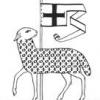I am reading sams teach c++ in one hour a day book and doing the exercises in the back of the chapters, what is a good project to work on while reading this book, I want to do a text based c++ program.
what next
a "text based program" doesnt really say too much about what you have in mind, but if you think building the program as a whole is too great of a task right now, think about what the program will need, break it down into smaller chunks and build specific programs to do those chunks, then either glue it together, or start over and take what you learnt and improve upon it.
I second Gibbon's post: you don't need to make a solitary project to adequately learn.
In fact, you'd probably benefit from multiple small projects. Repeating common tasks to ingrain them in your mind, and separating new concepts from concepts you've learned previously (especially true when it comes to debugging 3000 lines of code that you're still a bit iffy on!)
However, if you're up to the challenge, I'd recommend a text-based adventure game.
Easy to get the basics down (take user input, interpret user input, tell user where they are, etc), and easy to expand on progressively (Items, enemies, combat, dialogue, game levels, etc).
It's hard to give you any accurate ideas without knowing how much you currently know (and what you're currently learning), so I hope this is something to consider at least.
You'll also need to decide where this text is actually going to go. I'd recommend writing a Console program if you're tussling with logic more than anything else
EDIT: Actually, could you tell us a bit about what you're currently doing? We'd be able to give you much more appropriate ideas :)
Lecturer and semi-domesticated Code-Panda for Polygon College
Do Blackjack. Text only.
Keep the first attempt simple. Forget about doing a deck and give the player a random value from one to ten. Ask if the player wants another and if so give another random value. If he goes over 21, the player looses.
For the next addition of functionality, add in a dealer that works pretty much the same way but accepts new random values automatically if the total is < 17. If the dealer goes over 21 he looses. When the dealer stops taking cards, compare the dealer's score to the players and output a message indicating who wins.
For the next addition of functionality, take a bet from the player before the game begins. If the player wins, he adds the amount bet to his current amount (maybe start with 100 when then game begins). Otherwise he looses the amount of the bet.
At this point you have a pretty basic game of Blackjack (or 21 or whatever you call it). I believe that just about any programming technique or game element that you might be inclined to learn could build upon this basic game.
I am making progress on my blackjack game, I like kseh's input, I am following his lead, I am breaking up the game into small programs.
I am reading an oreilly book called Learning PHP, MySQL, JavaScript, CSS & HTML5. I am giving up on c++ and game programming for a while. I want to learn web programming. I also want to work on a project with the book. I don't want to work on a game, but want to work on a practical project. I know I have changed subjects in the past, but this seems very interesting. There are also quite a few jobs working on dynamic web sites. I have also taken a college course on HTML5 programming. I also want to work as a volunteer as a web designer, that way I can get my foot in the door.









